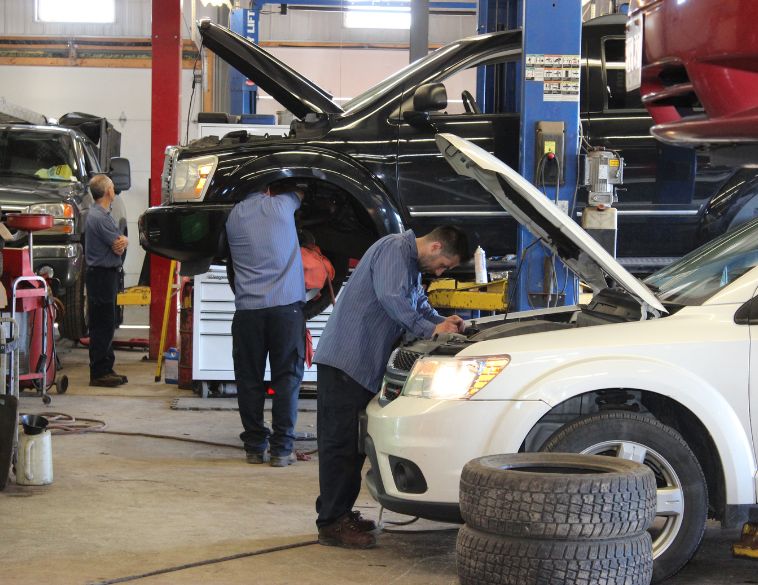It’s not just about having efficient technicians in your service bays.
Proficiency is a term we often hear when it comes to service bays and shop operations, but delivering on it is about more than just trying to maximize the efficiency of each technician in each service bay. There are cases where a shop might have the most efficient and qualified technicians in the business, but they aren’t properly supported by service advisors and administrative staff, and that can have a big impact on overall business performance.
On the flipside, if you have front-end staff and service advisors that are booking appointments, but you’re struggling with shop capacity because you don’t have enough qualified technicians to do the work, that also negatively impacts business performance. Not always easy
Proficiency can be defined as a blend of efficiency and performance but in reality; it isn’t always easy to achieve. In the service bay, it is basically determined by what you provide for your technicians to do, versus how fast it takes them to complete each repair order.
In an ideal situation, a shop has enough technicians to get all the work that’s assigned to them, completed within that day.
The reality, however, is that many service shops today are currently short by at least one licensed technician. And when you’re facing that situation, it can be very difficult to not only get all the work completed but also schedule appointments as well as allocate time for your technicians to take training.
The training aspect is very significant. We often hear how service shop owners and managers should send technicians to train and learn during business hours, but when you’re contending with a shortage of technicians, it simply isn’t possible, because repair orders need to be completed and vehicles sent out of the bay and back to the customer, particularly during the busier months of the year.

Budgetary considerations
During times when work tends to be slower, such as the dead of winter, budgetary considerations mean that it isn’t often cost-effective for your technicians to spend a lot of time taking training because there isn’t enough work coming in to support that.
To make the situation even more challenging, technicians need to continue improving their skills and expertise to stay current with vehicle technology trends, otherwise, they and the shop will be left behind. So how do you get around this problem?
One option is to allocate training to specific technicians at specific times, which currently is often after hours or on weekends. Another solution is to actively pursue fleet accounts if you don’t already have a good chunk of fleet business. If you’re successful, the result can be a steady stream of maintenance work, since fleets want to ensure vehicles are maintained as best as possible so they can be out on the road, generating revenue for that business. And with that steady stream of service revenue, shop owners and managers can better plan and allocate time for technician training as well as improve overall productivity and efficiency within the shop.
Charging more
Some might look at this situation and believe that a greater volume of repair work is the answer, but chasing more repair orders can cause more problems than it solves, leading to overwork, burnout and technicians quitting the business. To achieve effective, long-lasting technician proficiency, the shop must have a plan that provides consistent repair volume, with more profitable repairs—in other words, charging more for the services that your technicians perform. This becomes even more critical in today’s environment where vehicles are becoming ever more complex, requiring greater skill and expertise to properly diagnose and repair them.
The time and expertise of your technicians are valuable and that should reflect in your pricing, which, if you take the time to educate your customers properly, will come across as reasonable and fair.



